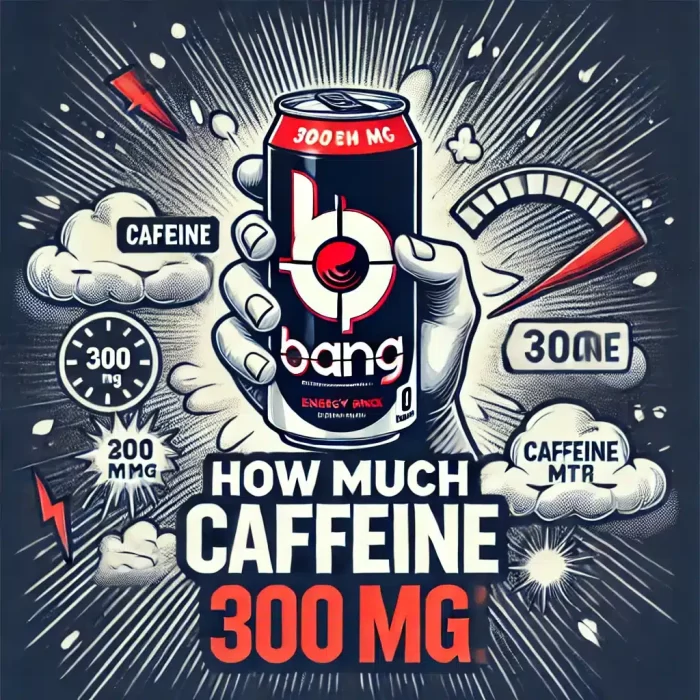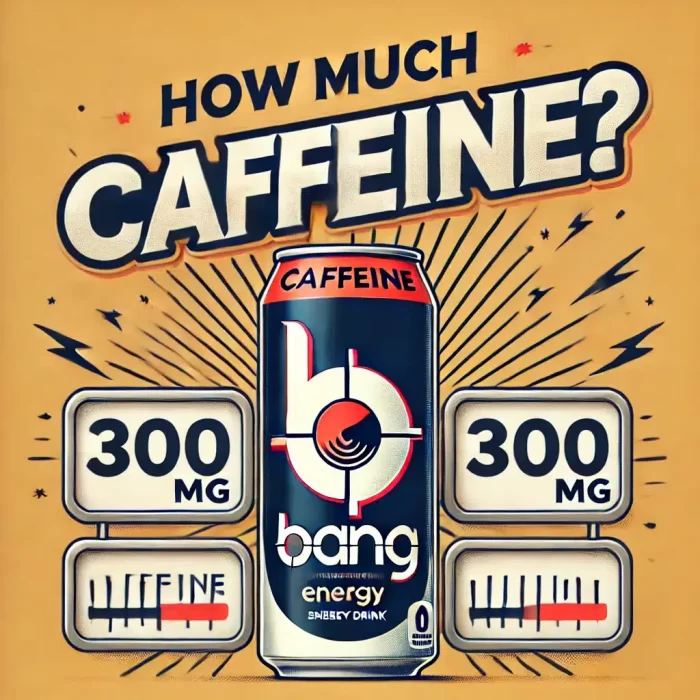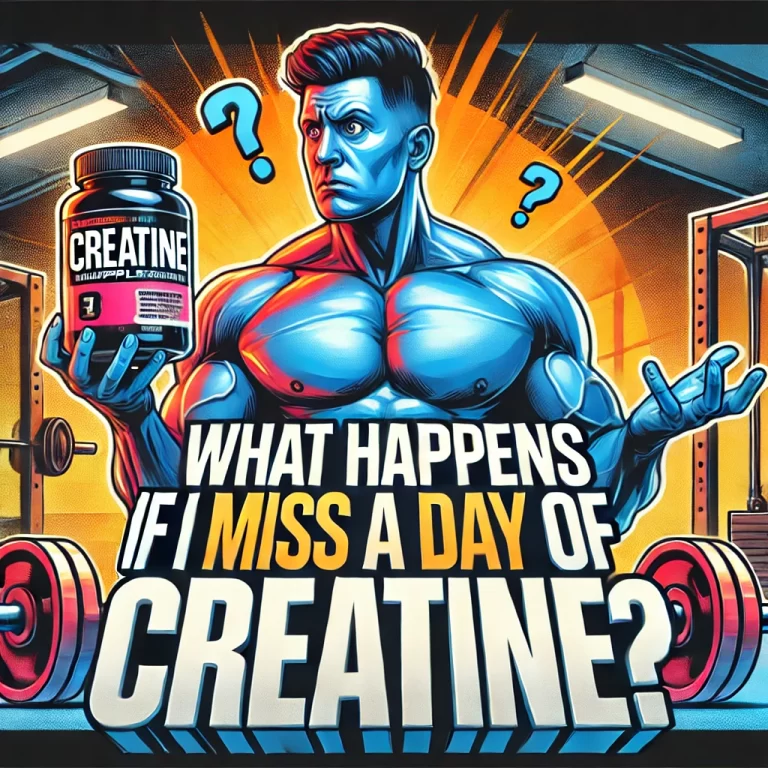how much caffeine is in a bang energy drink?
If you’ve ever cracked open a can of Bang Energy, you’ve probably felt the rush of energy that kicks in almost instantly. That’s because Bang isn’t just another energy drink it’s one of the strongest on the market. Whether you’re using it to power through an intense workout, a late-night study session, or a long day at work, Bang is designed to deliver serious energy fast.
But just how much caffeine is in a Bang Energy Drink? And is it safe to drink regularly? With so many different energy drinks out there, it’s important to understand what you’re consuming and how it compares to other options. Let’s break down the caffeine content of Bang Energy and what that means for you.
What’s in Bang Energy?
Bang Energy isn’t just about caffeine it also contains a variety of ingredients designed to enhance energy, focus, and endurance. Here’s a closer look at what’s inside a can of Bang:
1. Caffeine
Caffeine is the primary stimulant in Bang, providing an intense boost in energy, alertness, and focus.
2. Super Creatine
Bang includes a patented form of creatine bonded with L-leucine, known as Super Creatine. Creatine is commonly used to improve strength, power, and muscle recovery, although the effectiveness of this form of creatine in energy drinks is debated.
3. BCAAs (Branched-Chain Amino Acids)
Branched-chain amino acids (BCAAs) help with muscle recovery and endurance. While BCAAs are useful for athletes, the amount in Bang Energy is not disclosed, making it unclear how effective it is in this drink.
4. Electrolytes (Sodium & Potassium)
Bang contains small amounts of sodium and potassium, which help maintain hydration and muscle function, especially during intense physical activity.
5. Vitamins (B6, B12, C, & Niacin)
Bang is fortified with B vitamins like B6 and B12, which help convert food into energy and support metabolism. Vitamin C and niacin (B3) are also included for immune support and overall well-being.
6. Artificial Sweeteners (Sucralose, Acesulfame Potassium)
Unlike many energy drinks loaded with sugar, Bang is sugar-free, using artificial sweeteners instead. This helps prevent blood sugar spikes and crashes, but some people prefer natural sweeteners over artificial ones.
7. Carbonated Water & Natural/Artificial Flavors
Bang is a carbonated energy drink, meaning it has a fizzy, soda-like texture. The drink comes in a variety of flavors, with a mix of natural and artificial flavoring agents.
How Much Caffeine Does a Bang Energy Drink Contain?
Bang Energy Drinks contain a whopping 300 mg of caffeine per 16 fl oz (473 ml) can. That’s nearly four times the caffeine found in a regular 8 oz cup of coffee, which has around 80-95 mg of caffeine. If you compare it to other popular energy drinks, Bang is among the most highly caffeinated options on the market.
Caffeine Comparison Chart
| Beverage | Caffeine Content (per serving) |
|---|---|
| Bang Energy (16 oz) | 300 mg |
| Monster Energy (16 oz) | 160 mg |
| Red Bull (8.4 oz) | 80 mg |
| Coffee (8 oz) | 80-95 mg |
| Espresso (1 oz) | 63 mg |
| Celsius (12 oz) | 200 mg |
As you can see, Bang Energy far exceeds the caffeine content of most other energy drinks. This makes it one of the strongest energy drinks you can buy without a prescription.
Why Does Bang Energy Have So Much Caffeine?
Bang Energy Drinks contain a whopping 300 mg of caffeine per 16 fl oz (473 ml) can. That’s nearly four times the caffeine found in a regular 8 oz cup of coffee, which has around 80-95 mg of caffeine. This amount places Bang Energy at the top tier of highly caffeinated energy drinks, making it one of the strongest available on the market.
To put this into perspective, 300 mg of caffeine is equivalent to about three shots of espresso or nearly two cans of Monster Energy. That’s a massive dose in a single serving, designed to give you an immediate and prolonged energy boost.
If you’re someone who relies on caffeine for an extra push, Bang can certainly deliver. However, for those who aren’t used to high caffeine intake, drinking an entire can in one go might be overwhelming. The stimulating effects can be intense, especially if consumed on an empty stomach or in combination with other caffeinated beverages.
Caffeine Comparison Chart
| Beverage | Caffeine Content (per serving) |
|---|---|
| Bang Energy (16 oz) | 300 mg |
| Monster Energy (16 oz) | 160 mg |
| Red Bull (8.4 oz) | 80 mg |
| Coffee (8 oz) | 80-95 mg |
| Espresso (1 oz) | 63 mg |
| Celsius (12 oz) | 200 mg |
As you can see, Bang Energy far exceeds the caffeine content of most other energy drinks. If you’re used to drinks like Red Bull or even a regular cup of coffee, switching to Bang is a major jump in caffeine intake.
Another key point to consider is that Bang Energy is sugar-free, unlike some of its competitors, which means that you’re getting a strong caffeine boost without the sugar crash that typically follows drinks like Monster or Red Bull. Instead, Bang includes artificial sweeteners and amino acids that aim to provide sustained energy without added sugars.
So, is Bang Energy the right choice for you?
That depends on your caffeine tolerance and energy needs. If you’re looking for a serious energy kick that lasts for hours, Bang is a powerful option, but it’s also not something to take lightly. Let’s explore why it contains so much caffeine and what that means for your body.
Is 300 mg of Caffeine Too Much?

The FDA recommends a daily caffeine limit of 400 mg for healthy adults. With one can of Bang Energy containing 300 mg, that’s 75% of the daily recommended limit in just one drink. While some people can tolerate this level without any issues, others might find it too much to handle in a single serving.
How Much is Too Much?
The effects of caffeine depend largely on individual tolerance, metabolism, and frequency of consumption. For someone who regularly drinks coffee or energy drinks, 300 mg might feel like a strong but manageable boost. However, for someone who rarely consumes caffeine, this amount can lead to jitters, restlessness, and even heart palpitations.
Possible Side Effects of High Caffeine Intake
Consuming too much caffeine, especially in one sitting, can lead to:
- Jitters and nervousness – That shaky, restless feeling where you can’t sit still.
- Increased heart rate – Your pulse might feel faster than usual, which can be uncomfortable.
- Insomnia and sleep disturbances – If consumed late in the day, caffeine can keep you awake for hours.
- Digestive issues – Some people experience an upset stomach after consuming high doses of caffeine.
- High blood pressure – Caffeine can cause temporary spikes in blood pressure, which may be a concern for some individuals.
- Caffeine dependence and withdrawal symptoms – Regular high doses can lead to dependency, making it difficult to function without caffeine.
If you’ve ever felt uncomfortably wired or anxious after drinking an energy drink, chances are your body isn’t handling that amount of caffeine well. While some people thrive on high caffeine intake, others might experience negative side effects even at lower doses.
How to Safely Consume Bang Energy
If you want to enjoy Bang without the downsides, here are a few things to keep in mind:
- Don’t exceed one can per day – Drinking more than one Bang puts you close to or over the daily recommended caffeine limit.
- Avoid combining it with other caffeinated beverages – Coffee, soda, or pre-workout supplements can push your caffeine intake to dangerous levels.
- Drink it earlier in the day – Since caffeine stays in your system for hours, consuming Bang in the afternoon or evening could mess up your sleep.
- Listen to your body – If you start feeling anxious, jittery, or lightheaded, consider cutting back on caffeine or drinking Bang more slowly.
While 300 mg of caffeine might be perfectly fine for some, it’s a high dose that should be approached with caution. Knowing your limits and consuming caffeine responsibly can help you get the benefits of Bang without the unpleasant side effects.
Who Should Avoid Bang Energy?
While Bang Energy is marketed as a high-performance drink, it’s not suitable for everyone. Due to its extremely high caffeine content, some people should consider avoiding or significantly limiting their intake.
1. Children & Teenagers
The American Academy of Pediatrics advises against energy drinks for anyone under 18. High doses of caffeine can negatively impact a young person’s developing brain, sleep patterns, and cardiovascular health.
2. Pregnant or Nursing Women
The American College of Obstetricians and Gynecologists recommends limiting caffeine intake to 200 mg per day during pregnancy. Since Bang contains 300 mg per can, it exceeds this safe limit and could pose risks to the baby, including low birth weight and potential developmental issues.
3. Individuals with Heart Conditions
Because caffeine can increase heart rate and blood pressure, those with existing heart conditions should avoid high-caffeine energy drinks like Bang. The stimulant effect can put unnecessary strain on the cardiovascular system, potentially leading to complications.
4. People Sensitive to Caffeine
If you’re prone to jitters, anxiety, or caffeine-induced headaches, Bang might be too strong for you. Consuming 300 mg in a single sitting could lead to restlessness, nervousness, and an energy crash later on.
5. Those Prone to Sleep Problems
If you struggle with insomnia or irregular sleep patterns, consuming Bang, especially in the afternoon or evening can significantly interfere with your ability to fall and stay asleep. Since caffeine has a long half-life, it can linger in your system for hours, affecting your rest.
If you fall into any of these categories, it’s best to opt for lower-caffeine alternatives or skip energy drinks altogether.
How Long Does Caffeine from Bang Stay in Your System?
When you drink a can of Bang Energy, you might feel an instant surge of energy and alertness, but how long does that caffeine stay in your body? The answer depends on various factors like your metabolism, age, and overall caffeine sensitivity.
Caffeine’s Half-Life: What Does It Mean?
Caffeine has a half-life of about 5 to 6 hours in a healthy adult. This means that if you consume 300 mg of caffeine from a Bang Energy drink, about 150 mg will still be in your system after 5-6 hours. Another 5-6 hours later, you’ll still have around 75 mg remaining.
For example:
- If you drink Bang Energy at noon, you will still have 150 mg of caffeine in your system by 6 PM.
- By midnight, you’ll still have 75 mg of caffeine left, which may still be enough to affect your sleep.
Because caffeine takes a long time to leave your system completely, drinking Bang late in the afternoon or evening can interfere with sleep, leaving you feeling restless or struggling to wind down at night.
Factors That Influence How Long Caffeine Stays in Your System
Not everyone processes caffeine at the same speed. Several factors affect how quickly your body breaks down and eliminates caffeine:
- Metabolism: People with a fast metabolism will break down caffeine more quickly, while those with a slower metabolism will feel its effects for longer.
- Age: As we age, our bodies become less efficient at processing caffeine, meaning it may stay in your system for an extended period.
- Liver Function: Since caffeine is metabolized in the liver, those with liver conditions may take longer to eliminate it.
- Genetics: Some people are naturally more sensitive to caffeine due to their genetic makeup.
- Caffeine Tolerance: Regular caffeine consumers often process caffeine faster than those who rarely consume it.
- Other Foods & Medications: Certain foods, medications, and supplements can either speed up or slow down caffeine metabolism.
How Long Do the Effects of Bang Last?
While caffeine stays in your body for hours, its peak effects are usually felt within 30-90 minutes after consumption. This is when you’ll experience the most noticeable energy boost, increased focus, and alertness. After about 3-5 hours, the effects gradually wear off, but the caffeine itself remains in your system much longer.
How to Reduce Caffeine’s Impact on Sleep
If you enjoy Bang Energy but want to avoid sleep disturbances, consider these tips:
- Drink it earlier in the day – The earlier you consume caffeine, the more time your body has to eliminate it before bedtime.
- Limit your intake – Avoid consuming more than one can per day to prevent caffeine buildup.
- Stay hydrated – Drinking plenty of water can help your body metabolize caffeine more efficiently.
- Monitor how caffeine affects you personally – If you notice that Bang Energy disrupts your sleep, try cutting back or switching to a lower-caffeine alternative.
If you frequently find yourself tossing and turning at night, it may be worth adjusting your caffeine consumption schedule. Since caffeine lingers in the system for so long, having a Bang Energy in the evening is likely to keep you wired long past bedtime.
Are There Any Bang Energy Alternatives with Less Caffeine?
If you love the idea of an energy boost but find Bang’s 300 mg of caffeine too much, there are several great alternatives with less caffeine but still enough to provide a solid energy kick. Here’s a look at how some popular energy drinks compare:
| Energy Drink | Caffeine Content (per serving) |
|---|---|
| Bang Energy (16 oz) | 300 mg |
| C4 Energy (16 oz) | 200 mg |
| Alani Nu Energy (12 oz) | 200 mg |
| Celsius Energy (12 oz) | 200 mg |
| Monster Energy (16 oz) | 160 mg |
| Red Bull (8.4 oz) | 80 mg |
| Coffee (8 oz) | 80-95 mg |
C4 Energy (200 mg caffeine)
C4 Energy is a popular pre-workout and energy drink that delivers a solid 200 mg of caffeine per can, making it a great middle-ground option. It’s formulated with beta-alanine, which can help improve endurance and fight fatigue. If you’re looking for an energy boost that isn’t quite as extreme as Bang but still strong, C4 is a great option.
Alani Nu Energy (200 mg caffeine)
Alani Nu is a popular energy drink among fitness enthusiasts, with 200 mg of caffeine per can. It also contains B vitamins, electrolytes, and no artificial colors, making it a cleaner choice for those looking for a lighter, more refreshing energy drink. Plus, Alani Nu is known for its delicious flavors, which many people prefer over other energy drinks.
Celsius Energy (200 mg caffeine)
Celsius is a great alternative to Bang if you’re looking for a lower-caffeine energy drink that still provides a strong boost. It contains 200 mg of caffeine per can and is marketed as a metabolism-boosting drink, often used for workouts and endurance activities.
Monster Energy (160 mg caffeine)
Monster is a classic energy drink that contains 160 mg of caffeine per 16 oz can. While it’s lower than Bang, it still provides a good amount of energy, especially for those who don’t want to push their caffeine limits.
Red Bull (80 mg caffeine)
If you’re looking for a much lighter caffeine dose, Red Bull contains just 80 mg of caffeine per 8.4 oz similar to a regular cup of coffee. This makes it a better option for those who are more caffeine-sensitive but still want an energy boost.
Final Thoughts: Is Bang Energy’s Caffeine Level Safe?
Bang Energy is one of the strongest energy drinks available, packing 300 mg of caffeine per can. While this can be great for those needing a serious energy boost, it’s also close to the daily caffeine limit recommended by the FDA. If you’re sensitive to caffeine or don’t consume it regularly, Bang might be too intense for you.
If you decide to drink Bang Energy, be mindful of your caffeine intake throughout the day to avoid surpassing safe levels. And as always, listen to your body, if you experience jitters, a racing heart, or trouble sleeping, it might be best to cut back or choose a lower-caffeine option.






